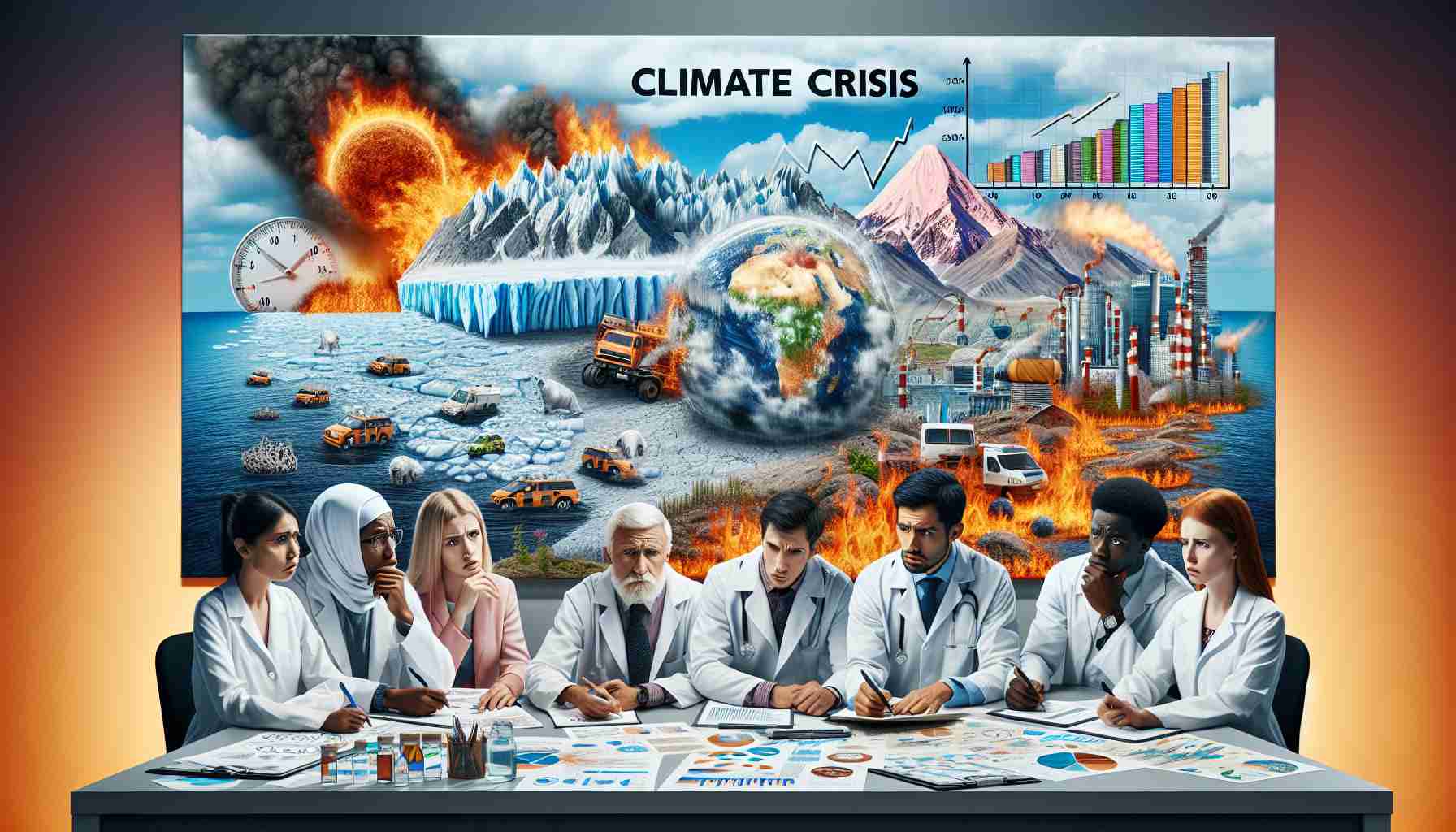Urgency in Action Needed
As the reality of climate change intensifies, the scientific community grapples with its role in advocacy. Leading voices in science argue that neutrality is no longer tenable. While scientists are often called to engage with the climate movement, they must balance activism with their commitment to factual integrity.
The credibility of scientists can be jeopardized by aligning too closely with activists who make exaggerated claims. For instance, one activist controversially predicted that climate change could claim 6 billion lives by the end of the century, a statement lacking in empirical support. Advocates are urged to communicate realistically about the climate crisis, highlighting observable phenomena such as catastrophic floods, devastating droughts, and raging wildfires worldwide.
Furthermore, the academic world must take action. Universities should prioritize climate education across all disciplines, transforming students into a powerful workforce focused on combating climate change. Funding models could be reimagined to support graduates who enter careers in sustainability, thereby aligning educational objectives with urgent environmental needs.
Ultimately, if the climate movement desires scientific collaboration, it must encourage genuine, evidence-oriented discourse rather than sensationalism. Working together, scientists and educators can create a united front against the perilous threats faced by our planet. It is time for the scientific community to step forward, advocating for change with both urgency and integrity.
Broad Implications of Climate Advocacy
The intersection of scientific integrity and climate advocacy carries significant implications for society, culture, and the global economy. As the urgency surrounding climate change solidifies, the role of scientists as credible advocates will increasingly shape public perception and policy reactions. If scientists adopt a more vocal stance on climate issues, they can transform discussions around sustainability and environmental protection into mainstream concerns, influencing industries and policymakers alike.
Culturally, the dissemination of fact-based narratives can shift social norms, fostering a collective responsibility towards environmental stewardship. Communities engaged in informed dialogue are likely to mobilize for local actions, driving grassroots movements that demand systemic changes. Such salient shifts can lead to a reevaluation of values, prioritizing sustainability over consumption-driven lifestyles.
In terms of economic consequences, an increased emphasis on sustainable practices could mean a substantial shift in job markets. The rise of green technologies and renewable energy sectors will demand a skilled workforce that has received adequate training in these fields. Investments in climate education can thus yield a dual benefit: preparing students for future employment while addressing urgent environmental challenges.
Additionally, the environmental effects of climate activism can extend beyond immediate policy changes; fostering a culture of responsibility can lead to long-term conservation practices and a reduction in carbon footprints, crucial for mitigating climate impacts.
In summary, while the conversation around climate change remains complex, fostering genuine scientific advocacy coupled with evidence-based communication is essential for cultivating a resilient society equipped to tackle the unprecedented challenges of our time.
The Climate Crisis: Bridging Science and Activism for a Sustainable Future
Urgency in Action Needed
As the effects of climate change become increasingly evident, the necessity for action within the scientific community has never been more pressing. Leading figures in science assert that maintaining neutrality in the face of such profound societal challenges is no longer a viable stance. This imperative is driving scientists to seek balance between activism and their dedication to factual integrity.
The Challenge of Credibility
One significant concern for scientists engaging in climate advocacy is the potential jeopardization of their credibility through association with exaggerated claims. While it is crucial to highlight the dire impact of climate change—evidenced by catastrophic floods, prolonged droughts, and wildfires—overstatements can undermine the movement’s legitimacy. For instance, alarmingly high predictions about the death toll from climate change lack scientific backing, which can detract from genuine concerns about the crisis.
Essentials of Effective Communication
Advocates are called to communicate facts about climate change realistically and to provide information rooted in empirical data. The scientific community can enhance public understanding by focusing on verified phenomena and shifting the narrative toward actionable insights. This strategic communication can help mobilize public and political support for necessary measures to combat climate change.
Educational Transformation
The responsibility does not solely lie with scientists; the entire educational infrastructure must adapt. Universities and educational institutions are urged to integrate comprehensive climate education across all disciplines. This shift would empower students to become informed advocates and skilled professionals dedicated to sustainability.
# Reimagining Funding Models
Furthermore, innovative funding models are needed to support graduates who pursue careers in fields related to sustainability. By aligning financial incentives with environmental goals, educational institutions can foster a generation equipped to tackle climate challenges head-on.
Collaboration for Change
For a unified effort against climate change, there must be an emphasis on genuine, evidence-based dialogue rather than sensationalist rhetoric. Scientists, educators, and activists can collaborate to present a cohesive front addressing the urgent threats posed by climate change.
Innovations and Trends in Climate Education
– Online Learning Platforms: Increasingly, universities are adopting online courses focused on climate science, allowing for broader access to critical information.
– Interdisciplinary Programs: Programs that connect environmental science with economics, political science, and public policy are emerging to provide students with a holistic understanding of climate issues.
– Experiential Learning Opportunities: Internships and community engagement projects are becoming integral parts of environmental education, allowing students to apply their knowledge in real-world contexts.
Conclusion
The stakes are high, and the demands on the scientific community are immense. Advocating for climate action requires both urgency and integrity, prompting a recalibration of how science interacts with activism. By fostering a culture of evidence-based dialogue and education, we can work collectively toward a sustainable future. Engage more with this topic by exploring climate.gov for comprehensive resources and updates.







